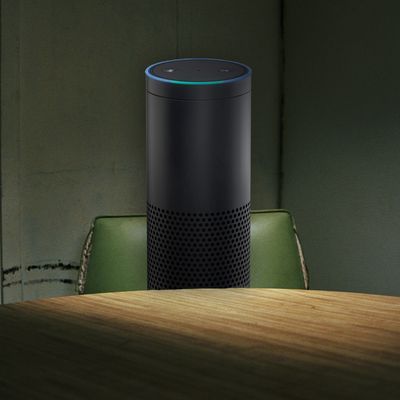
Could what you ask your Amazon Echo be used against you in a court of law? A murder case in Bentonville, Arkansas, is putting that question to the test. As detailed in the Information (subscription required), local police have issued Amazon a warrant for the voice recordings of Echo owner James Andrew Bates, who is accused of murdering Victor Collins in his hot tub after a night of drinking in November 2015.
Amazon’s Echo (and its main competitor, the Google Home) works by passively recording everything you say. None of this information is actually sent to Amazon. Think of it more like taking notes in class — as if you’re listening but not writing anything down until your professor actually says something important. But when the Echo hears “Alexa” (or whatever your activation phrase is), it begins to actively record. That snippet of speech is then sent to Amazon’s cloud servers, where your recorded message is run through a speech-recognition neural network and a response is sent back to you, whether that’s playing a song on Spotify or giving you the weather forecast.
Amazon keeps all of the recordings of you asking Alexa to play WNYC or of you setting a timer for 20 minutes. You can jump into the Alexa companion app and hear all of your requests again if you want to see just how bored you sound when talking to your home voice robot. Sure, it’s slightly creepy — but Amazon also tracks pretty much every move you make while you’re online shopping as well.
Court records show that Amazon twice declined to turn the actual voice-search queries over to the local police, though it also did not comment to the Information about the case in question. For what it’s worth, anecdotally, I’ve heard from a professor who works in voice research that Amazon deletes all voice data after six months — but Amazon has no stated policy about how long it holds onto that data. Still, if any of this has you feeling uneasy about your Amazon Echo, you can always head to amazon.com/myx, find your Echo, and delete out all of your old voice recordings.
In the above case, police confiscated the Echo itself and attempted to extract data from it, but it’s unclear how much they could get — the Echo itself doesn’t have much of a hard drive and almost no information is stored locally on it.
That may not necessarily be a problem, though. People have been convicted as a result of digital fingerprints left from cell phone use, search history, and even World of Warcraft. It would be very CSI: Cyber to imagine Amazon Echo being the proverbial smoking gun after someone asks, “Alexa, tell me how to murder someone?” but in the real world, many convictions rely on establishing where a suspect and their victim were on the day in question. And one of the key ways a smart home works is by keeping detailed logs of who is in your home and when they are in certain rooms. The major players in smart-home tech all take data security seriously, but it’s not outlandish to imagine a court compelling a company to turn over smart-home data that might be a key piece of evidence in a future trial.
In this specific case, it seems unlikely the Echo will prove useful for the investigation. Even if Amazon were to turn over the voice recordings, the Echo’s microphone, by design, is very good at filtering out background noise — it’s why an Echo can understand you even if you’re asking it something in a room with a lot of people talking. And, according to Bates’s defense attorney, police are actually focusing more on the data collected from his smart water meter than his Echo. Police say an abnormal amount of water was used when they believe Collins was killed, allegedly an indicator of Bates having washed away blood.





























